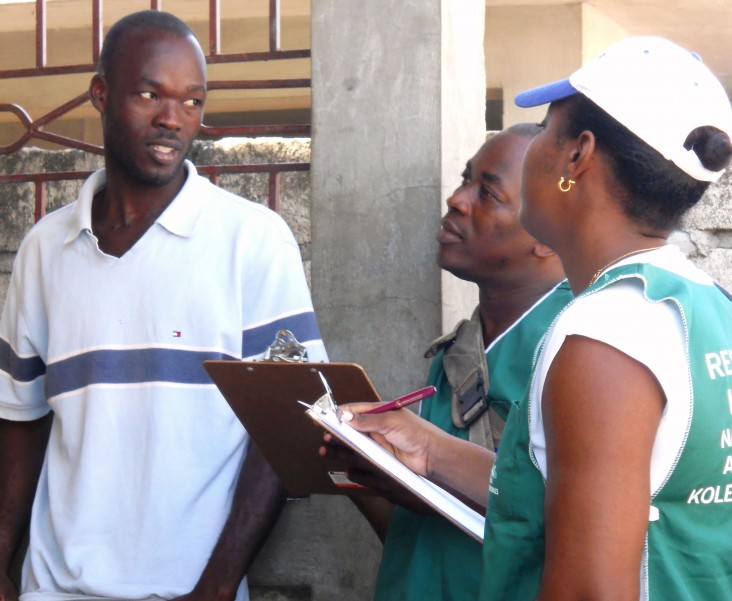
Haiti struggles to raise tax revenue. In fact, the country has one of the world’s lowest percentages of tax receipts as a share of GDP, at approximately 9 percent. This hinders the ability of municipalities to provide basic public services, such as waste management. With an expanded tax base, the Haitian Government seeks to improve the quality and scope of its services and decrease dependency on foreign aid.
Targeting this problem, in June 2010, USAID began partnering with the municipality of St. Marc to roll out a program designed to increase the local tax base. In coordination with the local tax administration, the program pioneered the development of an electronic tax database, tracking and management system, and provided equipment and training for local officials.
In just 18 months, the project has resulted in an increase in the number of properties on the tax roll from 900 to more than 21,000 and the number of businesses from 345 to 1,200, resulting in a significant revenue hike for the municipality. Property taxes alone increased by 240 percent over the previous levels.
“Thanks to this project supported by USAID, we have arrived closer to our dream of putting into place an effective system to raise municipal revenues,” says St. Marc Fiscal Service Director Eli Constant.
In parallel, the program supported the local mayor’s office to undertake a large-scale consultation with local citizens to identify priority public service projects, ranging from better traffic regulation to the construction of a public market, which will be implemented with anticipated tax revenues.
The initiative was intended to demonstrate the potential improvements that come from fuller municipal coffers and encourage individuals to pay into the system.
As USAID invests in improved governance at the local and national levels, St. Marc provides a model that can be replicated and expanded through cooperation with the Haitian Government and other donors.







Comment
Make a general inquiry or suggest an improvement.